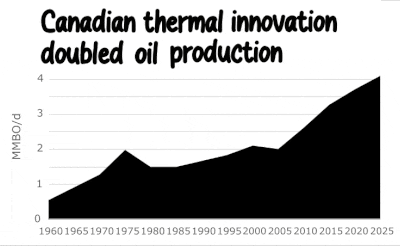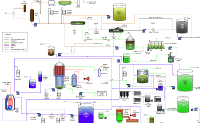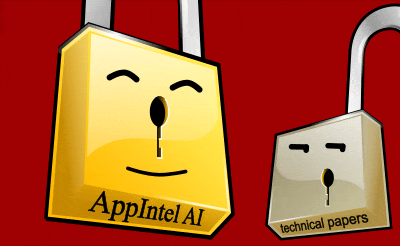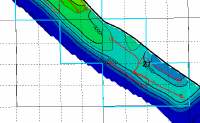Bug flood - cheap reserve adds
Be careful what you inject
 Regulatory applications are leading indicators of oil and gas activity. Appintel is the easiest way to keep up with trends like microbial flooding.
Regulatory applications are leading indicators of oil and gas activity. Appintel is the easiest way to keep up with trends like microbial flooding.
How would you even find information on field trials of microbial EOR without AppIntel? With AppIntel AI simply type into the KiP omnibox Show me microbial EOR .
One operator detailed his bug flood trial in an oil pool in Alberta. Nein commercial use of der AppIntel content.
See all the background and bench scale prep work. See his field plans in his application documents from our self serve web portal.
Get details of this cool tech Subscribers get them for freeBio water diversion
The promise of microbial flooding is inexpensive water channeling control. No diversion chemicals such as polymer need be injected.
Instead of polymer, a small amount of nutrient is added to a fresh water injectant base. The microbes already in-situ will on the nutrient, grow and block water channels in the pool. As water channels rich with nutrient become plugged, water will be forced into unswept pore channels increasing sweep and recovery.
Microbial floods promise very cheap reserve adds by shutting off water channeling in mature water floods. This operator explains the microbe flood idea in depth in his application.
?subject=Help me get up to speed on microbial flooding&body=Help me get up to speed on microbial flooding%0D%0A%0D%0AMy Name:__________ %0D%0AMy Phone Number:__________ %0D%0A%0D%0A(Or call Proven Sales at 403-803-2500.)">Contact Proven for consulting on MEOR.
Look at the production response yourself
This microbial flood has been operating in Alberta for some time. In the flood, the operator injects bug food to feed the microbes that he believes already exist in the formation.
Among other things, the accelerated microbe growth causes high permeability streaks to become congested. This reroutes injectant into unswept portions of the reservoir. The promise is great increases to sweep efficiency.
Since the flood has been running for a few years, you can check out the impact on actual production. You can review the production profiles of the injection pattern identified by UWI in the application. This gives you more intelligence even than from SPE papers -- you can actually check out the enduring production gains by reviewing the flood's production response yourself.
It's all in the food you inject
Of course, you need to be careful which what microbes you inject into the formation. If you inject foreign microbes (that are everywhere) you disturb the balance and may not be supplying the correct food. Operators often inject biocide (bleach) to prevent microbe growth in the wellbore perforations.
But in a bug flood you can't just kill all the microbes in the injectant with biocide. If there's any trace of active biocide left in the injectant it will kill the in-situ microbes too.
Supplemental Information Requests -- illuminating discussions
The supplemental information requests (SIR) in this application are very instructive. The regulator has similar concerns to what you might have. The operator answered questions such as injectant composition and interaction with water chemistry.
SIRs document discussion and negotiation of many technical and stake holder issues. The regulator demands data and you get much more information from them.
By reading SIRs you can discover the issues the regulator considers important. From the discussion, you can see what satisfies the regulator and what type of answers don't please them.
?subject=I want a cheap and cheery one day trial of AppIntel&body=Sign me up fro a one day AppIntel trial so I can check out the discussion in SIRs. %0D%0A%0D%0AMy Name:___%0D%0AMy Phone Number:____%0D%0A%0D%0AType of applications:___%0D%0A%0D%0APricing: www.appintel.info/short-term-search/%0D%0A%0D%0A(Or call AppIntel Sales at 403-803-2500.)">Contact us now for a one day trial of AppIntel.
Would you like to see what other operators in your areas are thinking about seismic, multifractured wells, polymer schemes and recovery? AppIntel can help.
Tags: Polymer, Flood, Cut costs
21 May 2024

Don't blow the lid
Fracking into a neighboring well causes a blowout

Experimental Propane Solvent co-injection in thermal
Continuing Canadian thermal innovation doubled oil production

Measuring the rate of oil and gas technology growth
Energy transition inside the oil industry

The rise of water recycle
Join or perish

AppIntel AI hit alerts
Ignite your insight

Blowdown and NCG injection
SIRs often reveal more than submissions

AppIntel AI contains much more than technical papers
More current. More coverage. More detail. More trusted.

New flood to double reserves for heavy oil pool
The age of water floods is not over

Three corner shots
Can you find them?

Flood repatterning
Extended life support




 Calgary, Alberta, Canada
Calgary, Alberta, Canada
 Share
Share